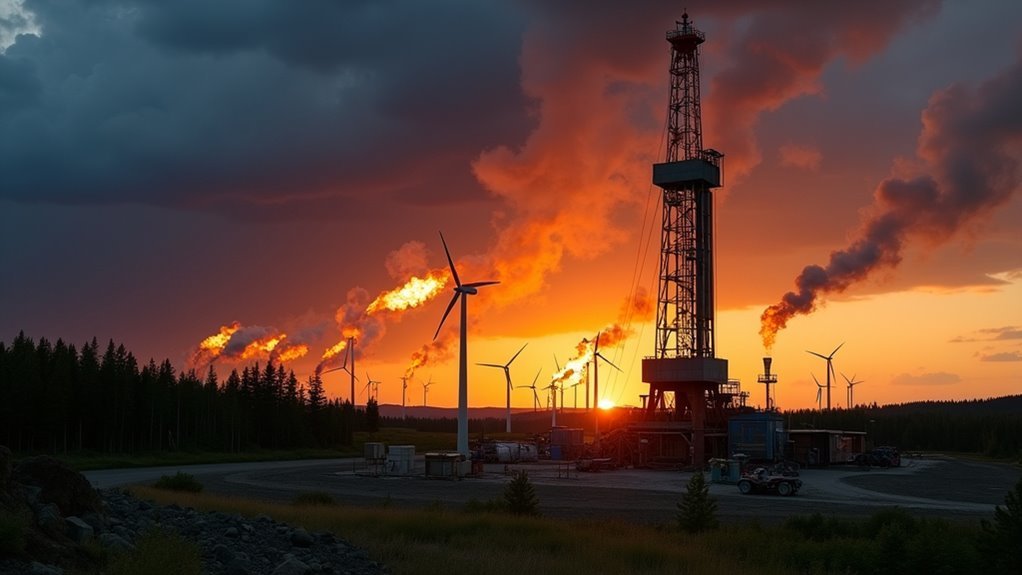How quickly can a president reshape America’s energy landscape? Donald Trump isn’t waiting to find out. On day one, he declared a national energy emergency, making it clear that fossil fuels are back in the driver’s seat. His “energy dominance” agenda reads like a petroleum industry wish list: boost oil production, slash regulations, and fast-track drilling permits.
Trump’s energy dominance agenda puts fossil fuels first, prioritizing oil production and deregulation over environmental concerns.
The numbers tell an interesting story. The U.S. already leads the world in oil and gas production, with forecasts showing 13.59 million barrels per day by 2025. Trump’s executive orders might not move that needle much – turns out market forces and investment returns matter more than presidential declarations. Funny how that works. Over 125 environmental rules were rolled back swiftly during his administration.
But here’s where things get messy. While Trump pushes fossil fuels, his trade wars are accidentally kneecapping clean energy. Tariffs on China, Mexico, and Canada have sent renewable energy costs soaring. Meanwhile, Chinese electric vehicle makers are probably having a good laugh as they gain ground globally. The administration’s actions could result in over 80,000 deaths per decade from pollution-related causes.
The environmental math isn’t pretty either. Rolling back Obama-era regulations means more greenhouse gases, threatened wildlife, and disrupted ecosystems. The Arctic National Wildlife Refuge? Now open for drilling. The Paris Climate Agreement? See ya later. It’s like playing environmental Jenga – pull out enough pieces, and the whole thing could come crashing down.
Energy companies aren’t exactly rushing to drill, though. They’ve seen this movie before – overproduction leads to price crashes. Many are sitting tight, wondering if betting big on fossil fuels makes sense when the world is increasingly going green.
On the global stage, Trump’s fossil fuel push creates an interesting power play. More oil production means more leverage over energy-dependent rivals. But it also means torching international climate cooperation and reshuffling global energy alliances.
The big question remains: Will this gamble deliver the promised energy dominance, or will it leave America holding onto yesterday’s energy sources while the rest of the world moves forward?




